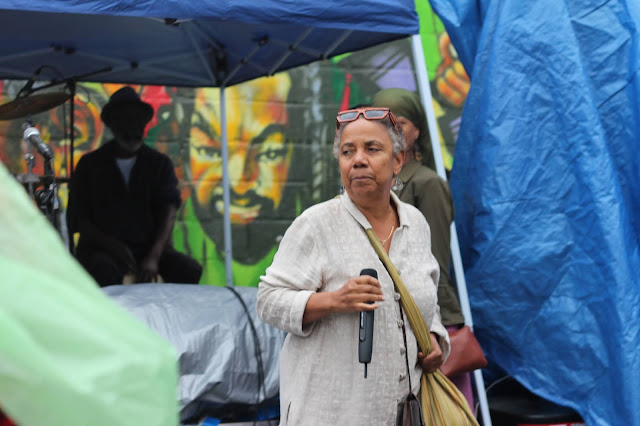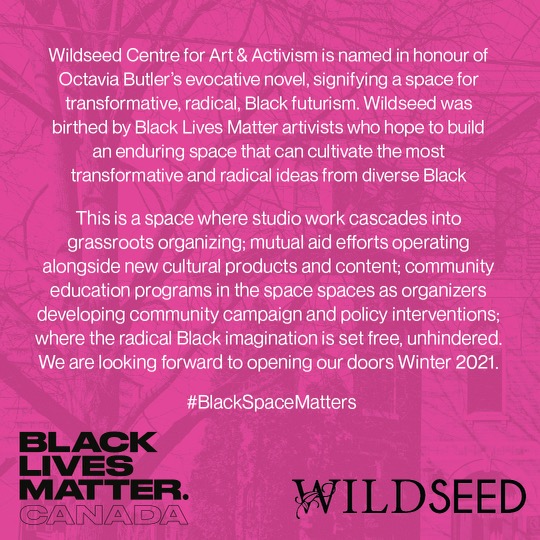By Neil Armstrong
Ontario’s ministry of education is assuring members of the African, Black and Caribbean communities in Peel Region that it is working with the Peel District School Board (PDSB) to dismantle systemic racism and improve governance.
On July 22, Advocacy Peel and other representatives of the communities held a press conference and rally outside the PDSB head office to express their disappointment in recent developments at the Board.
They said Black parents and community members were hopeful when the education ministry placed the Board under supervision after Arleen Huggins’ investigation “determined that the collective Board and the Director’s Office is lacking both the ability and capacity, and perhaps even more importantly, the will, to address the findings in the report.”
In a media release, they note that recent developments one year later have community members questioning whether the ministry itself is capable and willing to provide safe schools for all students, free of discrimination.
Among their concerns are “significant changes in leadership at the PDSB while they remain under supervision.”
“Both the interim permanent director of education, Colleen Russel-Rawlins, and the associate director of equity, Poleen Grewal, are currently absent from the Board. Returning to the Board’s past practice, no community groups are being consulted as part of the selection process for a new director.”
However, Caitlin Clark, a spokesperson for Education Minister Stephen Lecce, says the Supervisor, Bruce Rodrigues, will work in partnership with the Board to hire a new director of education for the PDSB.
"We believe that Ontario's schools must be places where all students learn in safe and inclusive classrooms, free from discrimination and hate. While there has been progress, we know there is more to do, which is why the board will remain under supervision until the minister is satisfied that his directives are fully addressed and fulfilled to dismantle systemic racism and improve governance.
“Mr. Rodrigues will continue to work with the Board's senior administration and with the Board of Trustees to ensure good governance of the Board, equity and to address issues related to disproportional access to learning opportunities for all Peel students. Mr. Rodrigues will - in partnership with the Board - also manage the recruitment and hiring of a qualified and appropriate new Director of Education for Peel District School Board."
Meanwhile, Advocacy Peel board member, Colin Winston-Browne, notes that “white supremacy never goes away on its own” and that, “without strong anti-racist leadership at the board, change will not happen.”
The groups say the government’s comments on the math curriculum is a reversal of the anti-racist direction the ministry took on the release of the ministry report a year ago.
Echoing the sentiments of most Black, African and Caribbean residents, community organizer Idris Orughu is “disappointed that the ministry raised our hopes only to let us down. It will be difficult to trust the minister of education unless he returns to the path he was on when he placed the board under supervision due to its systemic anti-Black racism.”
The report on the PDSB is conscious that its findings of anti-Black racism are not unique to the Peel Region. “Indeed, the recommendations we offer may be instructional to other school boards across the province,” notes the Review of the Peel District School Board.
Advocacy Peel and the community representatives said the only way to regain the trust of the community is to stay the course until anti-Black racism is eradicated from the Peel District School Board.
“Now is not the time to try and turn us around. We are not going anywhere and will fight with greater intensity if they continue to marginalize our children,” says Paula Hylton, another Advocacy Peel board member.
The ministry of education says it will continue to drive real, meaningful change for Black and racialized children in Ontario, including through the new destreamed Grade 9 math curriculum and the end of discretionary suspensions for students from kindergarten to grade 3, which disproportionately impacted racialized children.
“We have mandated that all education staff, trustees, and senior school board staff have human rights, anti-racism and anti-discrimination training, and rescinded regulation 274, so that students see themselves reflected that [sic] their educators by ensuring hiring is done based on merit, qualification, and diversity in Ontario. We will continue to take action to counter racism and act to ensure all students feel safe, respected, and included within Ontario's schools.”
The education ministry notes that while the board has made progress over the past year towards meeting the minister's directions related to good governance in the interest of all students, it nonetheless remains under supervision until the binding directions are addressed to the minister's satisfaction.
While under supervision, the supervisor is vested with the authority of the board and, accordingly, is responsible for the recruitment and hiring of the director of education, including the composition of the hiring panel.
The ministry says the supervisor continues to provide regular updates on work underway at the board, in response to deliverables and timelines outlined in the minister's directions.
On June 19, 2020, Bruce Rodrigues was appointed as Supervisor of the Peel District School Board (PDSB) with a mandate to enable the Board to provide good governance in the interests of all students of the board, including ensuring implementation of the minister's binding directions issued on March 13, 2020.
The concerns in the PDSB that led to the Supervision of the Board were substantial. Since the start of Supervision, the PDSB has made significant progress in providing good governance and leadership to the board, including addressing issues of systemic racism, specifically anti-Black racism, and discrimination, says the ministry.
It says this work to address the systemic issues in the PDSB are ongoing as Rodrigues has taken a number of important steps to address these concerns, including: hiring a governance expert to establish procedures and practices for effective and equitable board governance; establishing an Equity Office, including the hiring of a Superintendent of Equity and an Equity Outreach Office; supporting the development of an anti-racism policy; and developing human rights, equity and governance training for all trustees.



















